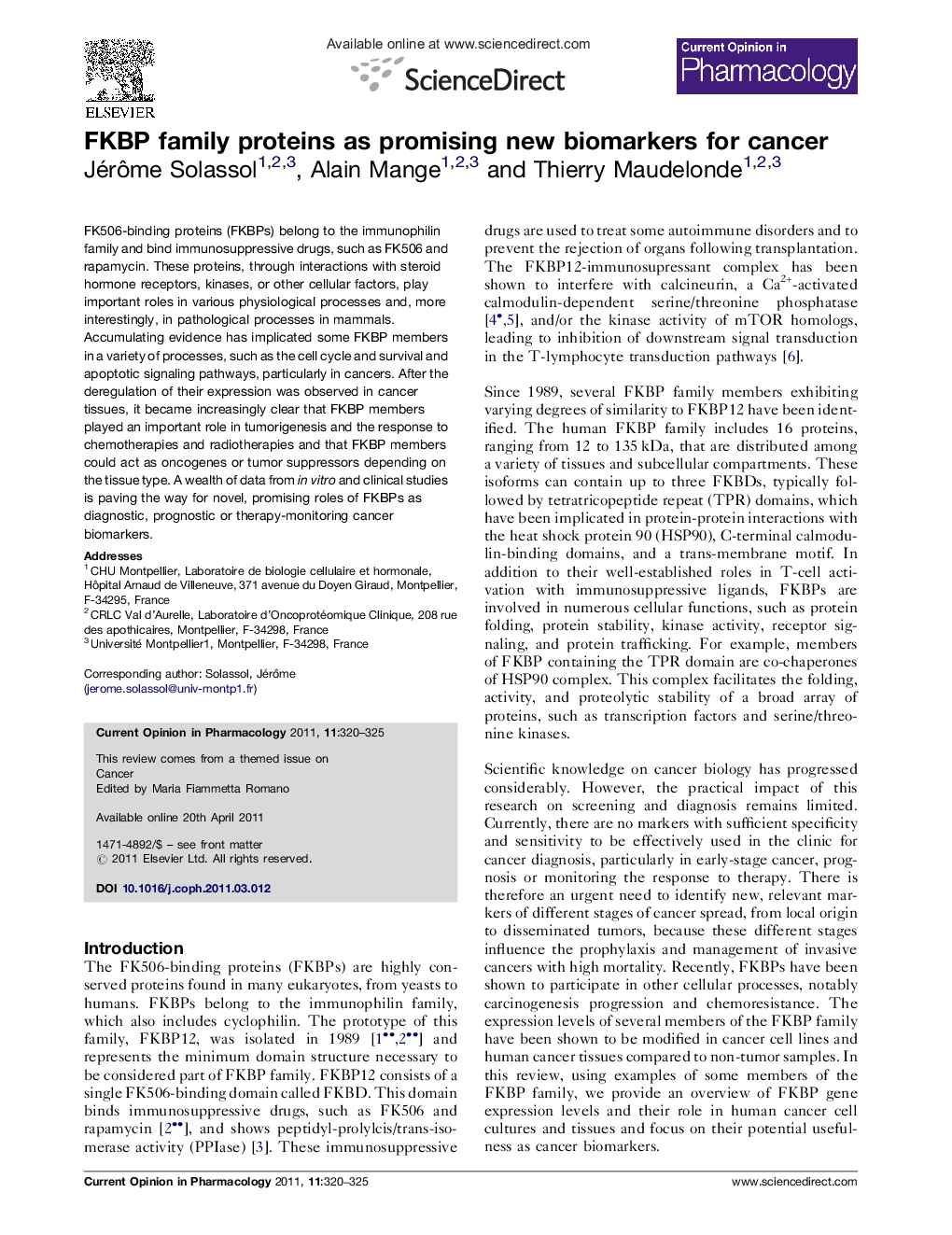| Article ID | Journal | Published Year | Pages | File Type |
|---|---|---|---|---|
| 2530055 | Current Opinion in Pharmacology | 2011 | 6 Pages |
FK506-binding proteins (FKBPs) belong to the immunophilin family and bind immunosuppressive drugs, such as FK506 and rapamycin. These proteins, through interactions with steroid hormone receptors, kinases, or other cellular factors, play important roles in various physiological processes and, more interestingly, in pathological processes in mammals. Accumulating evidence has implicated some FKBP members in a variety of processes, such as the cell cycle and survival and apoptotic signaling pathways, particularly in cancers. After the deregulation of their expression was observed in cancer tissues, it became increasingly clear that FKBP members played an important role in tumorigenesis and the response to chemotherapies and radiotherapies and that FKBP members could act as oncogenes or tumor suppressors depending on the tissue type. A wealth of data from in vitro and clinical studies is paving the way for novel, promising roles of FKBPs as diagnostic, prognostic or therapy-monitoring cancer biomarkers.
► FKBPs participate in cancer cellular processes. ► FKBPs are implicated in cell growth and survival and apoptotic signaling pathways. ► FKBP51 provide a relevant tissue marker of chemo-sensitivities and radio-sensitivities. ► FKBP52 autoantibodies are promising diagnostic cancer biomarkers.
